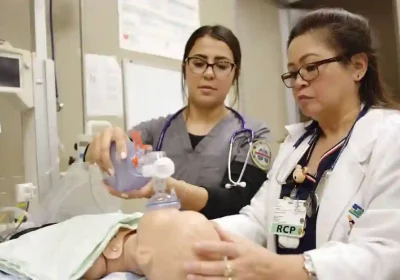Online Degrees in Political Science: Shaping Government Virtually
Political Science, the systematic study of government, politics, and political behavior, plays a crucial role in understanding the complex world of governance, policy-making, and international relations. In an era marked by rapid technological advancements, online degrees in Political Science have emerged as a powerful tool for individuals to engage with political issues, shape government policies, and influence the future of societies virtually. In this article, we will explore the world of online degrees in Political Science and how they empower students to actively participate in the political landscape from the comfort of their digital screens.
The Significance of Political Science
Political Science is a field that seeks to explain, analyze, and predict political phenomena. It covers a wide range of topics, including:
- Government and Political Systems: Studying different forms of government, their structures, and functions.
- International Relations: Analyzing interactions between countries, diplomacy, conflict resolution, and global governance.
- Political Theory: Exploring the philosophical foundations of political thought and ethical considerations in politics.
- Public Policy: Examining the formulation, implementation, and evaluation of policies that impact society.
- Comparative Politics: Comparing political systems, institutions, and practices across different countries.
- Political Behavior: Understanding how individuals and groups make political decisions, participate in elections, and influence policy outcomes.
- Political Economy: Analyzing the relationship between politics and economics, including issues like trade, development, and globalization.
Political Science equips individuals with the knowledge and skills needed to make informed decisions, participate in civic life, and effect positive change in their communities and beyond.
The Digital Transformation of Political Science Education
Traditionally, Political Science education took place within the walls of physical classrooms, where students engaged in discussions, debates, and research. However, the rise of digital technology and the growth of online education have revolutionized the field.
Online degrees in Political Science have gained prominence, offering students the opportunity to pursue political studies through virtual platforms. These programs combine traditional political inquiry with modern technological tools to create a dynamic and accessible learning environment.
Advantages of Pursuing an Online Political Science Degree
Online Political Science programs offer several advantages that make them an attractive option for both aspiring policymakers and individuals interested in political issues:
- Accessibility: Online programs are accessible to students worldwide, eliminating geographical barriers and ensuring that individuals from diverse backgrounds can engage in political education.
- Flexibility: Online education allows students to balance their studies with work, family, or other commitments, providing a level of flexibility that is essential for many learners.
- Diverse Course Offerings: Online Political Science programs offer a wide range of courses covering various aspects of politics, policy, and international relations, allowing students to tailor their education to their specific interests and career goals.
- Cost-Effective: Pursuing an online degree can often be more cost-effective than attending a traditional on-campus program. Students save on commuting, housing, and other expenses associated with physical attendance.
- Global Community: Online Political Science programs foster a global community of political enthusiasts and learners, offering opportunities for networking and collaboration with individuals from different cultural backgrounds.
- Interactive Learning Tools: Online courses employ interactive learning tools, multimedia resources, and digital platforms to enhance the learning experience and facilitate discussions on political issues.
Types of Online Political Science Degrees
Online Political Science programs offer various degree options to cater to students’ interests and career aspirations. Some common types of online Political Science degrees include:
- Bachelor of Arts (BA) in Political Science: A BA in Political Science provides a foundational education in political theory, government, and policy. It is suitable for those looking to develop a broad understanding of the field.
- Master of Arts (MA) in Political Science: An MA in Political Science offers advanced study and specialization in political theory, international relations, and policy analysis. It often includes research components and is ideal for individuals seeking to deepen their political knowledge.
- Master of Public Administration (MPA): An MPA focuses on public administration, governance, and policy analysis. It is geared toward individuals interested in careers in public service and administration.
- Doctor of Philosophy (Ph.D.) in Political Science: A Ph.D. in Political Science is a research-focused degree that prepares individuals for careers in academia, research, and leadership roles in political organizations.
Embracing Technology in Online Political Science Education
Online Political Science degrees leverage technology to create engaging and interactive learning experiences. Here are some ways technology is integrated into online Political Science programs:
- Virtual Discussions and Debates: Virtual discussion forums, webinars, and video conferences facilitate political discussions and debates, allowing students to engage in real-time dialogue.
- Digital Libraries and Resources: Students have access to digital libraries, political databases, and online archives for research and study.
- Multimedia Resources: Online courses often include multimedia resources such as video lectures, political documentaries, and interactive presentations on political issues.
- Policy Analysis Tools: Access to policy analysis software and tools allows students to evaluate policies and their impact.
- Online Simulations: Some programs offer online political simulations and scenarios for students to analyze and develop solutions to real-world political challenges.
Career Opportunities in Political Science
A degree in Political Science opens doors to a wide range of career opportunities across various sectors. Some potential career paths for Political Science graduates include:
- Public Service: Graduates often pursue careers in government agencies, working in roles such as policy analysis, public administration, and diplomacy.
- International Relations: Graduates may work in international organizations, think tanks, and non-profits, focusing on global issues, diplomacy, and conflict resolution.
- Political Campaigns and Consulting: Political Science graduates are valuable assets to political campaigns and consulting firms, where they contribute to campaign strategy, polling, and public relations.
- Law: Many Political Science graduates go on to law school and become lawyers or legal professionals.
- Journalism and Media: Graduates can work in journalism, reporting on political events, policy developments, and international affairs.
- Academia and Research: Some graduates pursue careers as university professors, researchers, and scholars, contributing to the academic exploration of political issues.
- Non-Profit Organizations: Political Science graduates often find meaningful work in non-profit organizations, advocacy groups, and humanitarian agencies, addressing social and political challenges.
- Business and Corporate Sector: Understanding political dynamics is valuable in the corporate world, especially in roles related to government relations and public affairs.
Challenges and Considerations
While online Political Science degrees offer numerous advantages, there are also challenges and considerations to keep in mind:
- Self-Motivation: Online learning requires self-discipline and motivation to stay engaged with coursework and assignments.
- Limited Face-to-Face Interaction: Students may miss out on in-person discussions and networking opportunities that can enhance the traditional classroom experience.
- Research Resources: Access to physical libraries and political archives may be limited for online students, requiring them to rely more on digital resources.
- Evaluation and Assessment: Online programs must develop effective methods for evaluating students’ comprehension of political concepts, policy analysis skills, and critical thinking abilities.
- Technical Proficiency: Students should be comfortable with technology and digital tools to succeed in online Political Science programs.
Conclusion
Online degrees in Political Science are empowering individuals to actively engage with political issues, influence government policies, and shape the future of societies from the convenience of their digital devices. Whether you aspire to be a policy analyst, diplomat, political consultant, or simply want to deepen your understanding of political processes, an online Political Science degree offers a pathway to becoming an informed and engaged citizen in today’s complex political landscape.
As technology continues to advance, the field of online Political Science education is poised to grow and innovate, providing students with even more opportunities to shape government policies and contribute to the ongoing discourse of political thought. In a digital age, the impact of political science education extends beyond borders, making it a powerful force for positive change in the world.










